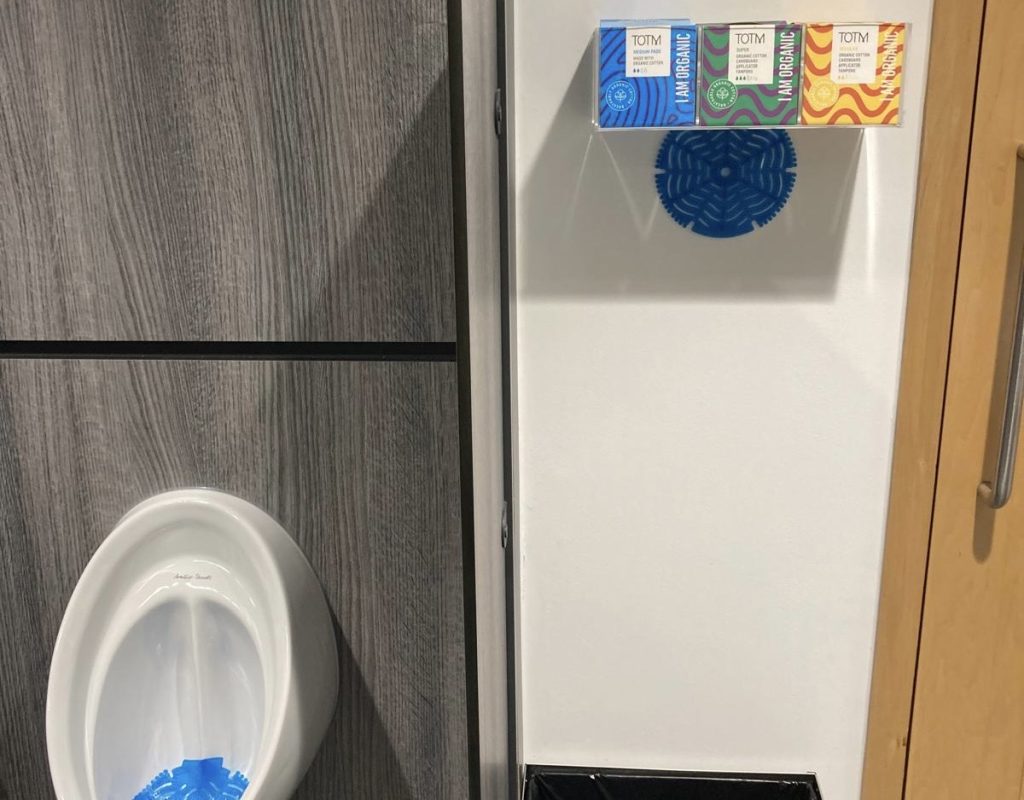Just over one in ten UK workers (12%) say their employers provide support for menstruation and menstrual health, new data has shown.
According to the data by CIPD, respondents’ most common types of menstrual support currently provided by their employers were free period products (18%), menstrual leave (15%) and time off for medical appointments (12%).
Period products also remained the type of menstrual support most favoured by employees, with 53% of respondents selecting period products as the most helpful form of support.
Danny Cox, Head of Communications at financial services company Hargreaves Lansdown, which launched a pioneering menstruation and menopause policy for their employees in 2021, spoke favourably about the importance of menstrual support in the workplace.
He said: “We don’t ask colleagues to pay for toilet roll so why would we ask them to pay for menstrual products?
“I’ve got three daughters and I can’t imagine how they would be feeling if they were struck down with period poverty or felt unsupported in the workplace.
“It’s a basic human right to have access to sanitary products and employer support should be there.”
Hargreaves Lansdown’s policy includes the offering of free period products in male, female and unisex bathrooms and accessible provisions for menstrual period leave – which Cox confirmed has been successfully utilised by his employees.

Their policy is one of few within the UK as, under UK labour laws, there is currently no official entitlement to menstrual leave for workers.
Very few countries globally have introduced menstrual leave, including Japan, Taiwan, Indonesia and South Korea.
Zambia has provided employees with one day of menstrual leave per month since 2015.
Recent data from Bloody Good Period has also confirmed that the rising cost of living has contributed to growing issues of period poverty within the UK, with 2.8 million people in the UK struggling to afford period products at the end of 2023.
This amounts to one in five people who menstruate and a 75% increase from 2022.
Eloise, 25, from Kingston, has suffered from severe period pain since being a teenager, and speaks about how much she would benefit from greater menstrual support in the workplace.
She said: “I can’t explain how difficult it is sometimes to get into work and do my job properly, it really holds me back.
“I wish employers would be more understanding of the support that many women need. It’s always expected of us to just carry on as normal but for some people that isn’t possible.”
Eloise, who did not feel comfortable disclosing her workplace, also said that she herself has faced workplace discrimination and difficulties when trying to negotiate paid time off or menstrual leave.
Eloise’s experience is reflected by CIPD’s data, with 69% of respondents reporting that their symptoms have had a negative impact on them at work and 53% have been unable to go to work at some point due to their symptoms.
Likewise, almost 50% of respondents said that they would never tell their manager that work absence was related to menstrual symptoms, particularly if they were male.
Cox echoed the importance of employers, particularly those who are male, being aware of the difficulties many may face when menstruating.
He said: “We keep menstrual products in the male bathrooms so that men are aware that period products are a necessity, and also put all of our managers, male and female, through menopause training.
“We’ve still got a long way to go – our misconceptions of menstruation are ingrained in us – but I think almost everyone would agree that no women should suffer at work in silence.”
UK support for menstrual leave or ‘period leave’, as it is dubbed, remains narrow, with a YouGov poll conducted in 2022 finding that 45% supported menstrual leave in the UK.
Women (52%) were significantly more likely than men (39%) to support paid time off for periods, and those under 30 were also more likely to be supportive.
Organisations such as Bloody Good Employers offer support and education for employers wanting to better support their employees suffering from menstrual-related issues, with their four-step certification programme.
For Judy Bennett, from Richmond, who has suffered severe period pains due to endometriosis, menstrual support in the workplace would be life-changing.
She said: “I cannot believe it’s 2024 and we still have nothing mandatory in place for people suffering daily with menstruation-related issues.
“It’s nothing to be ashamed of, and employers really need to do better.”
The fight for UK menstrual support in the workplace continues, with campaigns such as Wellbeing of Women’s ‘Just a Period’ advocating for a removal of the normalisation of severe period pains and helping women to access the support they need.
In April 2024 it was also announced that the UK Government’s Period Product Scheme for schools and colleges, which provides free period products for girls and women in their place of study, would be renewed until July 2025.
Featured Image Credit: Monika Kozub on Unsplash





